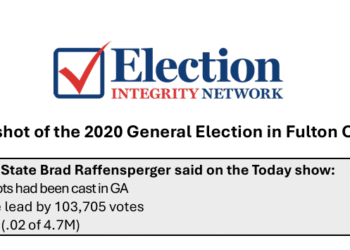In a compelling discussion, Jack Brewer, former NFL player and founder of the Jack Brewer Foundation, shed light on the systemic failures impacting families in Minnesota and the profound impact of his ministry. Brewer’s reflections critique the inadequacies of government interventions and emphasize the transformative power of faith in addressing deep-seated societal issues.
Brewer’s focus on Minnesota highlights a troubling reality: “In Minneapolis, black families are four times poorer than white families,” he noted, pointing to severe economic disparities. He criticized the government’s inability to effectively tackle these issues, saying, “The system has failed these communities, leaving them to struggle with poverty and lack of opportunity.”
Brewer’s ministry seeks to address these gaps by providing support to some of the most vulnerable populations, including those incarcerated and struggling with addiction.
Brewer’s work with the Jack Brewer Foundation illustrates a hands-on approach to tackling these issues. “We go into the prisons, preach the word of God, and give inmates tools to transition back into society,” Brewer explained. His foundation’s efforts are deeply rooted in Christian values, aiming to restore individuals to their rightful places within their families and communities. He emphasized, “Our goal is to get these men back in the house as fathers, so they can contribute positively to their communities.”
A key aspect of Brewer’s critique involves the failure of secular systems to provide real, lasting solutions. He argued that secular therapies and treatments often fall short, stating, “I don’t see restored life in a lot of cases with modern psycho therapies and drugs. The gospel, on the other hand, provides a transformative experience that modern methods can’t match.” Brewer’s conviction is that true redemption and recovery come from spiritual transformation, which secular approaches lack.
Brewer’s concern extends beyond individual rehabilitation to broader societal failures. He expressed frustration with the lack of church involvement in addressing critical social issues, such as the foster care system and educational deficiencies. “Why is the church not fulfilling the gap in these communities stricken by poverty?” he asked, pointing to the neglect of nearly 400,000 children in the U.S. foster care system. Brewer attributes this gap to a broader decline in moral leadership within religious institutions. “We’ve taken the father out of the home, and with it, we’ve removed the spiritual and moral guidance that is crucial for nurturing strong families and communities.”
His criticism also touches on the shifting cultural landscape and its impact on societal values. Brewer lamented the loss of traditional family structures and moral foundations, saying, “We’ve redefined love to fit a secular narrative, turning away from the biblical principles that once guided us.”
This shift, according to Brewer, has led to a weakening of societal norms and an erosion of family values.
Despite these challenges, Brewer remains hopeful and motivated by the results he has witnessed through his ministry. He highlighted success stories from his programs, where individuals have turned their lives around through faith. “We’ve had guys come off of death row who, once they find Christ, never return to their old ways,” Brewer shared. This testimony underscores his belief in the power of spiritual redemption over secular solutions.
Brewer’s message is a call to action for both religious and secular communities to address these systemic issues with renewed vigor. He urges citizens to remain engaged and proactive, asserting, “We are serving for the future of this country and for our Lord and Savior.”
His final words are a clarion call for reinvigorated moral and community leadership to bridge the gaps left by failed government policies and secular interventions.
Brewer’s reflections highlight the profound impact of faith-based initiatives in addressing societal failures and the urgent need for a return to core values and active community involvement.
His critique of government shortcomings and the secular approach to social issues reveals a pressing need for transformative solutions grounded in spiritual principles.
For more on Jack Brewer, watch the full WarRoom segment:





